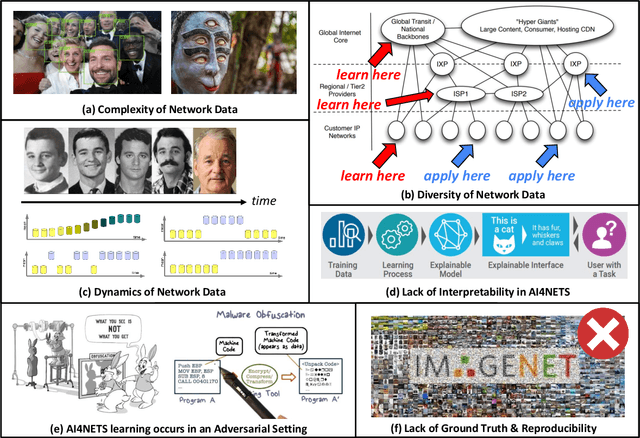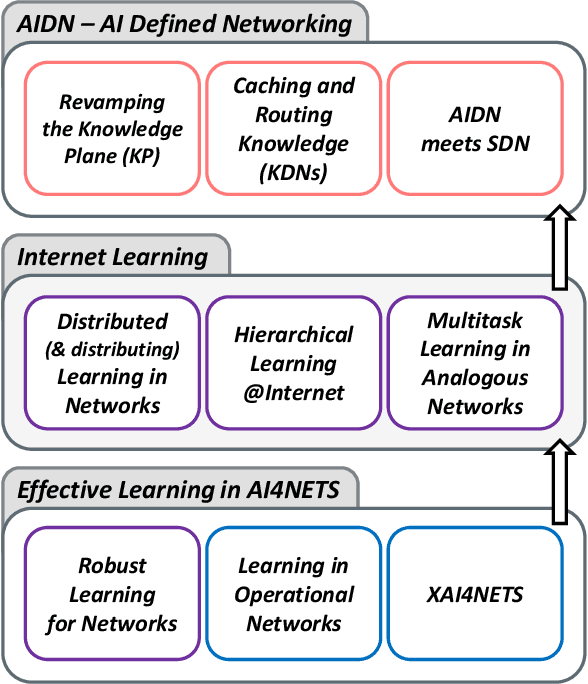Two Decades of AI4NETS-AI/ML for Data Networks: Challenges & Research Directions
Paper and Code
Mar 03, 2020

The popularity of Artificial Intelligence (AI) -- and of Machine Learning (ML) as an approach to AI, has dramatically increased in the last few years, due to its outstanding performance in various domains, notably in image, audio, and natural language processing. In these domains, AI success-stories are boosting the applied field. When it comes to AI/ML for data communication Networks (AI4NETS), and despite the many attempts to turn networks into learning agents, the successful application of AI/ML in networking is limited. There is a strong resistance against AI/ML-based solutions, and a striking gap between the extensive academic research and the actual deployments of such AI/ML-based systems in operational environments. The truth is, there are still many unsolved complex challenges associated to the analysis of networking data through AI/ML, which hinders its acceptability and adoption in the practice. In this positioning paper I elaborate on the most important show-stoppers in AI4NETS, and present a research agenda to tackle some of these challenges, enabling a natural adoption of AI/ML for networking. In particular, I focus the future research in AI4NETS around three major pillars: (i) to make AI/ML immediately applicable in networking problems through the concepts of effective learning, turning it into a useful and reliable way to deal with complex data-driven networking problems; (ii) to boost the adoption of AI/ML at the large scale by learning from the Internet-paradigm itself, conceiving novel distributed and hierarchical learning approaches mimicking the distributed topological principles and operation of the Internet itself; and (iii) to exploit the softwarization and distribution of networks to conceive AI/ML-defined Networks (AIDN), relying on the distributed generation and re-usage of knowledge through novel Knowledge Delivery Networks (KDNs).
 Add to Chrome
Add to Chrome Add to Firefox
Add to Firefox Add to Edge
Add to Edge